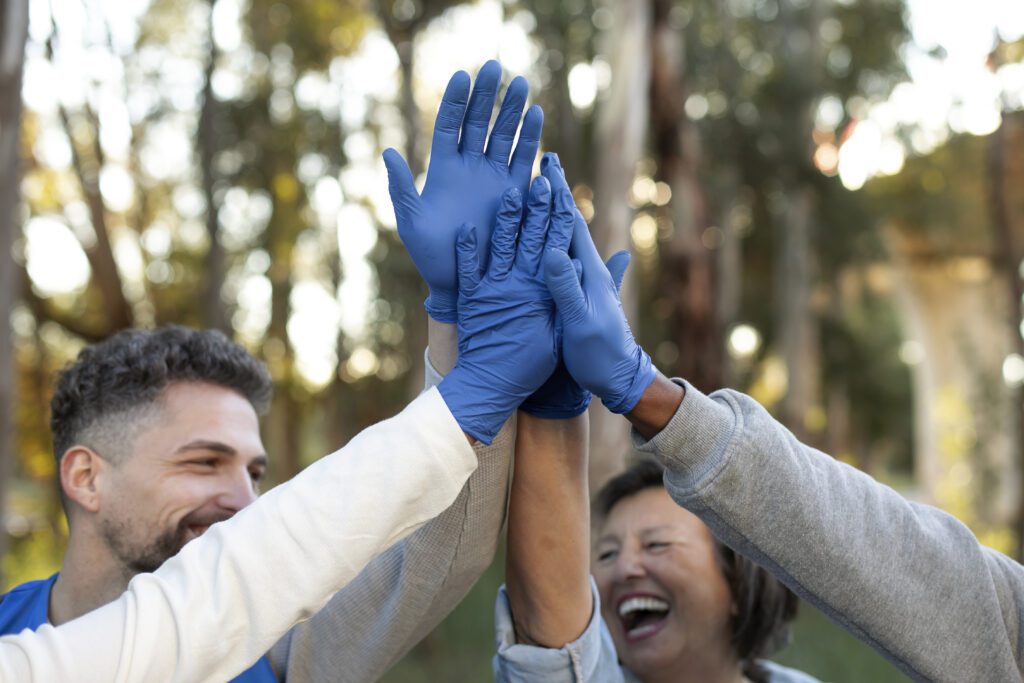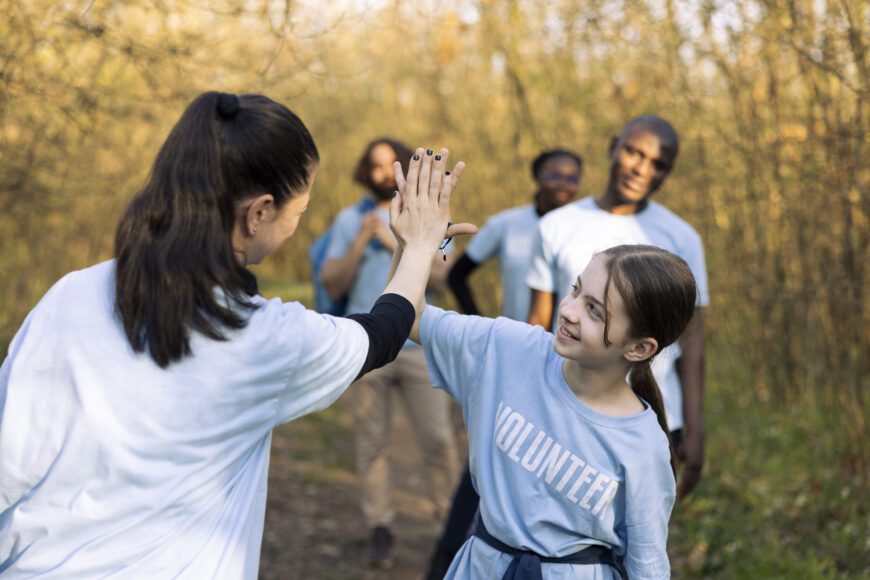Volunteering is a powerful catalyst for positive change. From local charities to international development projects, volunteers dedicate their time and skills to make a lasting difference in the world. This blog explores the profound and multifaceted impact of volunteering on individuals, communities, and the global landscape.
1. Driving Social Change: Volunteers as Agents of Transformation
Volunteers often address critical issues overlooked by governments and large organizations, acting as the driving force behind many social movements. They are the unsung heroes fighting poverty, environmental degradation, and other pressing challenges.
Consider the fight against climate change. While policymakers and businesses are crucial, grassroots volunteers are often the ones on the ground: educating communities, organizing cleanups, and advocating for eco-friendly policies. They act as catalysts, raising awareness, inspiring action, and pushing for policy shifts that create lasting environmental impact.
Similarly, in combating global poverty, volunteers support programs providing education, healthcare, and economic opportunities. Whether teaching English in rural schools or building homes for families, they are on the front lines, uplifting communities and fostering more equitable societies.
2. Building Stronger, More Resilient Communities
Volunteers strengthen communities by fostering solidarity and shared purpose. They build connections, cultivate trust, and promote collaboration.
In underserved or disaster-stricken areas, volunteers bridge the gap between residents and larger organizations like NGOs or government bodies. They provide invaluable insights into community needs, advocate for resources, and mobilize action, leading to more sustainable, community-driven solutions.
Beyond crisis response, volunteers play a vital role in prevention. Health volunteers, for example,
focus on disease prevention and health education, reducing the burden on local healthcare systems. By promoting hygiene, vaccination, and nutrition, volunteers empower communities to take control of their well-being, fostering long-term resilience and self-sufficiency.

3. Cultivating Empathy and Understanding: Bridging Divides
Volunteering offers a unique opportunity to step outside one’s comfort zone and experience the world differently. From working at a local food bank, assisting refugees, or participating in conservation projects, volunteers gain firsthand exposure to diverse challenges. It fosters empathy and compassion, broadening their understanding of marginalized groups.
In today’s globalized world, empathy is essential. Volunteers learn to connect with people from diverse cultures, socioeconomic backgrounds, and life experiences, breaking down prejudice and discrimination.
For instance, a volunteer working in a developing country’s orphanage might develop a profound understanding of the resilience and strength of children who have faced immense hardship. This emotional connection transcends mere charity, fostering genuine understanding.
4. Skill Development and Expanded Networks: Personal and Professional Growth
While serving others is the primary motivation, volunteering also offers significant personal and professional benefits. Volunteers develop valuable transferable skills such as leadership, communication, project management, and problem-solving.
A volunteer on a construction project might gain practical building skills and leadership experience. A volunteer assisting with research might develop analytical and data collection skills.
Volunteering also creates valuable networking opportunities, connecting individuals with shared values. Volunteers meet
professionals, activists, and fellow volunteers, creating a network that can amplify their collective impact through collaboration and resource sharing.
5. Making a Lasting Impact on Individuals: Offering Hope and Inspiration
Volunteers directly improve individual lives by providing food, medical care, mentorship, and more. Beyond tangible aid, they offer something even more profound: hope. They demonstrate that those in need are seen, heard, and cared for.
Volunteers working with vulnerable children or at-risk youth provide not just academic support but also emotional encouragement and guidance. Their mentorship can be transformative, helping young people stay on track and avoid negative influences.
Volunteers act as role models, demonstrating that positive change is possible. Their dedication and compassion inspire those they serve.
6. A Global Movement of Solidarity: Connecting Humanity
Volunteering is part of a large global movement of solidarity, demonstrating our interconnectedness and the ripple effect of our actions.
It reflects a shared commitment to creating a better world and believing everyone can contribute to positive change. Volunteers from all walks of life unite to address complex global issues like hunger, education, healthcare, and environmental sustainability. This collective effort creates a global community bound by compassion and a desire for a better future.
7. Long-Term Benefits: A Cycle of Giving
The true impact of volunteering extends beyond immediate changes to its long-term effects. Volunteers often return to their communities with new skills, perspectives, and a strong commitment to service, creating a cycle of giving.
Many volunteer organizations prioritize long-term sustainability, empowering local communities and building systems that benefit people long after volunteers have left. From education programs to healthcare initiatives, they contribute to lasting solutions.

Conclusion: The Enduring Power of Volunteers
Volunteers are the lifeblood of countless movements and causes. They are change makers, bridge-builders, and the heart of communities worldwide. Through selfless action, they create lasting impact on individuals, communities, and the world.
They demonstrate the incredible power of human connection and compassion, reminding us of our collective ability to make a difference. In a world that can sometimes feel divided, volunteers inspire us to create a ripple effect of positive change, leaving a legacy for generations to come.
Author
Written By Maya Dinguana


